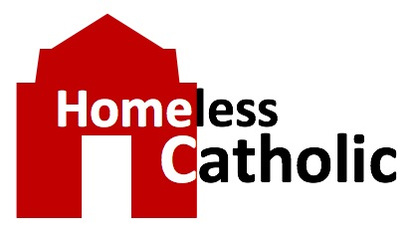The lamb was silent
The mute surrender of the lamb that gave its own life to protect thousands from death foreshadowed the willing surrender of a later ‘lamb’ whose submission would empower eternal life of millions.
It is because of the lamb that breathed new life into that earlier, ancient promise that we can now see in a mirror, if only dimly, what life is still to come.
Reflection - Lambs
http://www.usccb.org/bible/readings/112618.cfm
Revelation 14:1-3, 4b-5
Luke 21:1-4
Abraham lived approximately 1700 years before the coming of the Messiah. He and his descendants were a nomadic people. They were shepherds moving from place to place with the change of seasons and the fall of beneficial rains. Consequently, sheep and lambs are referred to frequently in the early books of the Bible. However, it is in the story of Abraham that we first find a Biblical reference to the coupling of the lamb and religion. Abraham was proceeding with his son, Isaac, to the place where Isaac was to be sacrificed when Isaac asked: “Where is the lamb for a burnt offering?" (Genesis22:7) To which Abraham replied: "God will provide himself the lamb for a burnt offering, my son."
It is in the book of Exodus, however, that the lamb truly comes into prominence; for there, the sacrifice and consumption of the lamb becomes the epicenter of life, both physical and spiritual. Pharaoh, in his stubbornness, had resisted the hardship of nine previous plagues. So, the last of the ten was decreed as the ultimate judgement for refusing to accept God’s will: the first born of every family, flock, and herd was to die on a single night. It was a dreadful collision between the will of Pharaoh and the will of God; but it confirmed once and for all that Pharaoh was but a god who could be crushed when confronted by the true Almighty.
In the center of this epic battle was a lamb.
Each Israelite family was to select an unblemished lamb, slaughter it and roast it, not for sacrifice, but for the family meal that same evening. It’s blood was to be touched to the lintel and doorposts of each Israelite house; and the blood was a sign to the angels executing God’s will: death shall not enter! And so the blood of the lamb was life for all who lived therein.
The truth made concrete in this historical incident was but a shadow of the transcendent truth it anticipated. The physical lives saved through the lamb and it’s blood in ancient times signaled a far greater event to be realized two thousand years later. A new lamb was to come. Like the original that both died and saved on that night in Egypt “He opened not his mouth; like a lamb that is led to the slaughter, and like a sheep that before its shearers is silent, so he opened not his mouth.” (Isaiah 53:7) The mute surrender of the lamb that gave its own life to protect thousands from death foreshadowed the willing surrender of a later ‘lamb’ whose submission would empower eternal life of millions. It is because of the lamb that breathed new life into that earlier, ancient promise that we can now see in a mirror, if only dimly, what life is still to come.
We have many names for Jesus. At this time of year he is most frequently referred to as the holy child or some variation of that identifying name. Later he would be known as the Word, the Christ, the savior, the Son of David, the king, the Son of God, or one of hundreds of others. But none of these exalted titles and names was chosen by John, the evangelist, to introduce him as he entered public life. Rather, he chose the title which spoke of the familiarity of a common meal, the title which was identical with the ultimate surrender to God, the title which recalled how life was given through the shedding of blood.
[John] saw Jesus coming toward him, and said, "Behold, the Lamb of God, who takes away the sin of the world!” (John 1:29)
The Church ends it’s liturgical year with text from the book of Revelation: “Then I looked and there was the Lamb standing on Mount Zion.” It is the stance of triumph. It is the classic image of the conqueror. But what immediately follows on our calendars is not the season of the lamb. Rather, it is the season when we celebrate the king who came as an infant. It is the season of a silent night, a holy night. It is the season when the “all-powerful word leaped from heaven, from the royal throne, into the midst of the land that was doomed.” (Wisdom of Solomon 18:14-15)
I’m a child when it comes to Christmas and the days of Advent when we prepare for its coming. But in reflecting on the lamb it occurs to me that maybe my image of the season needs to stretch a bit broader. The holy child may well be as cuddly as a lamb. But this lamb will give me himself for food and his blood will give me eternal life.

